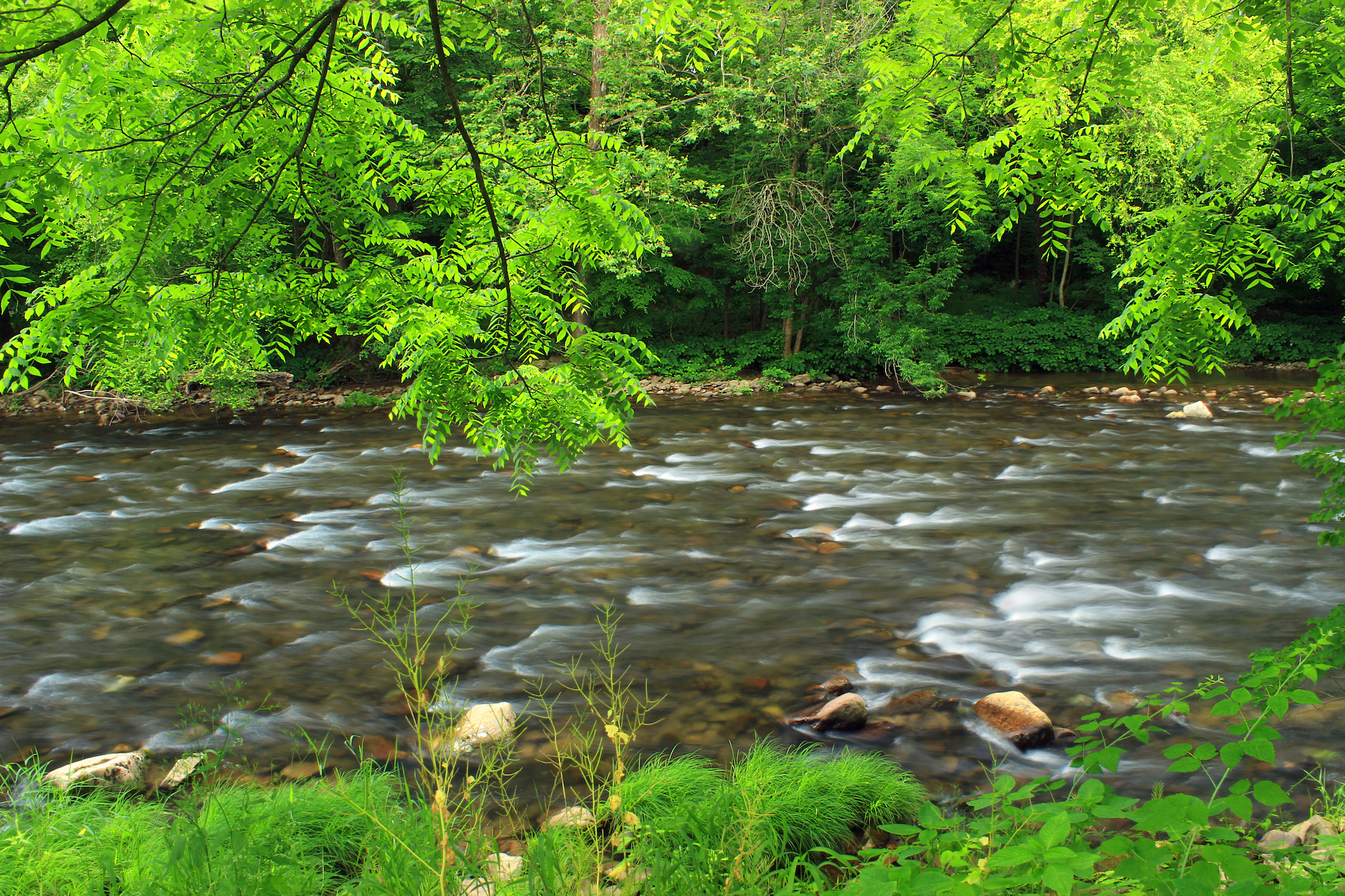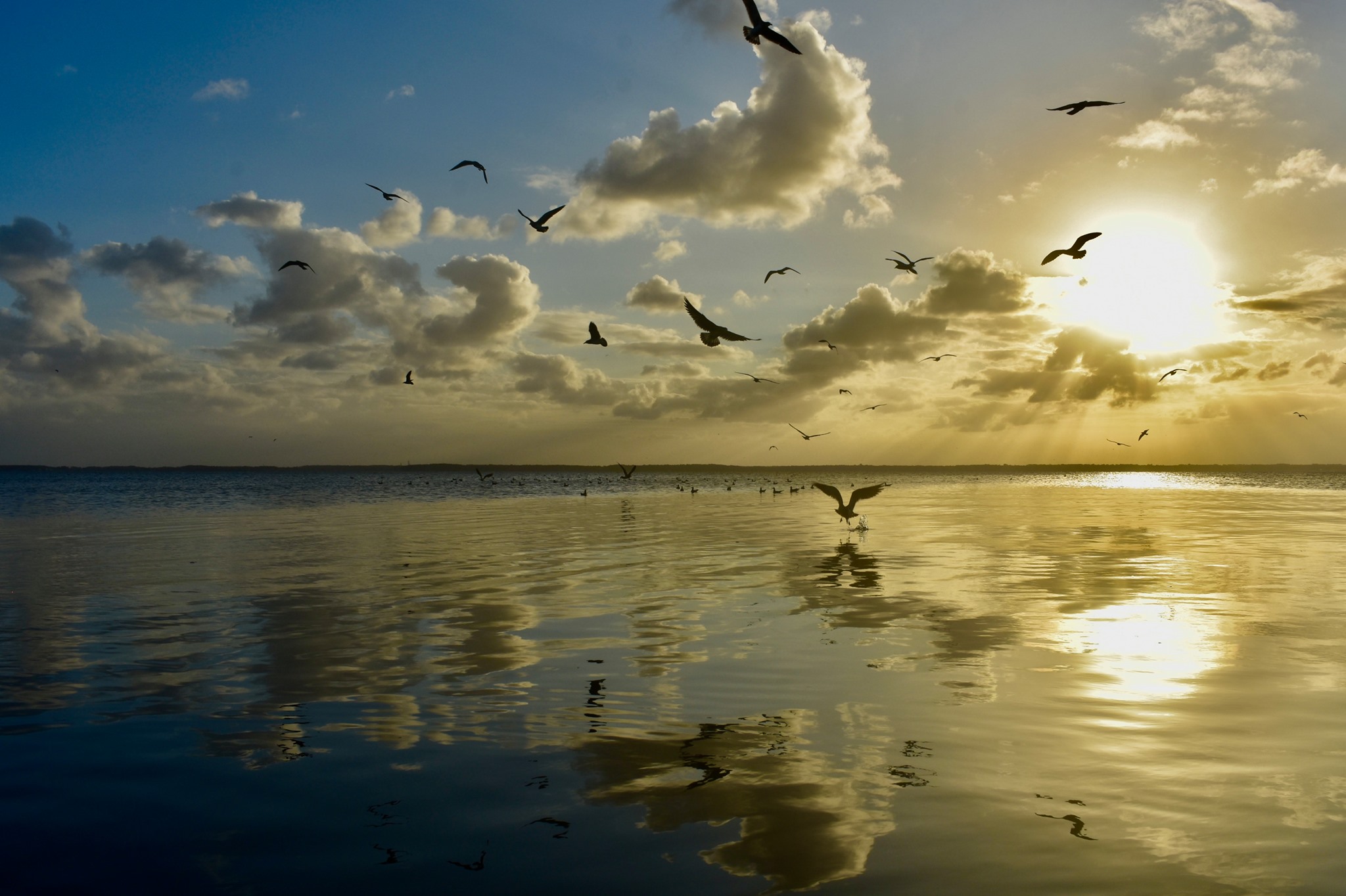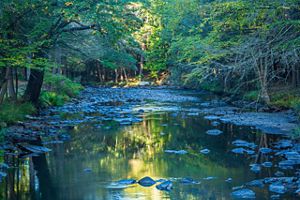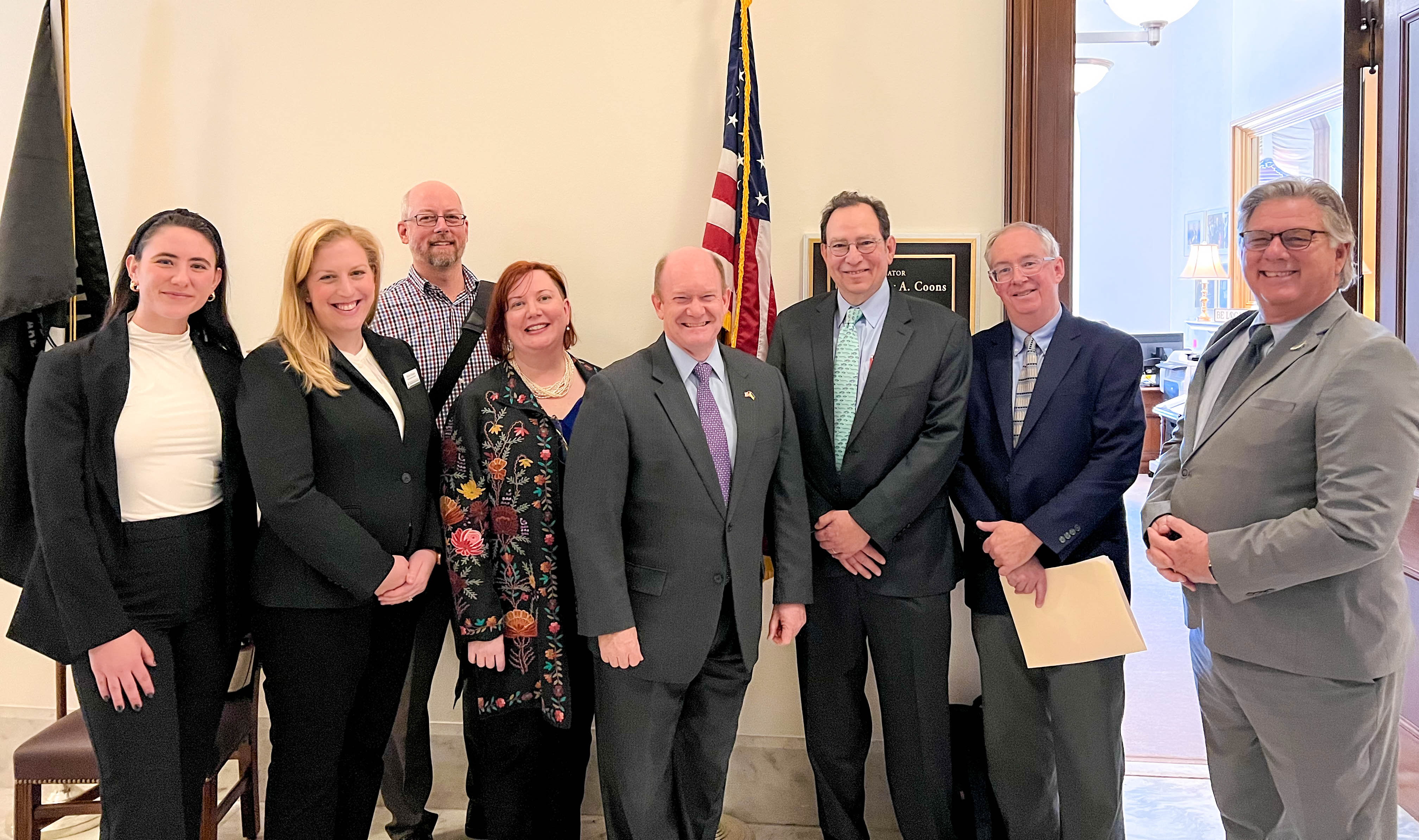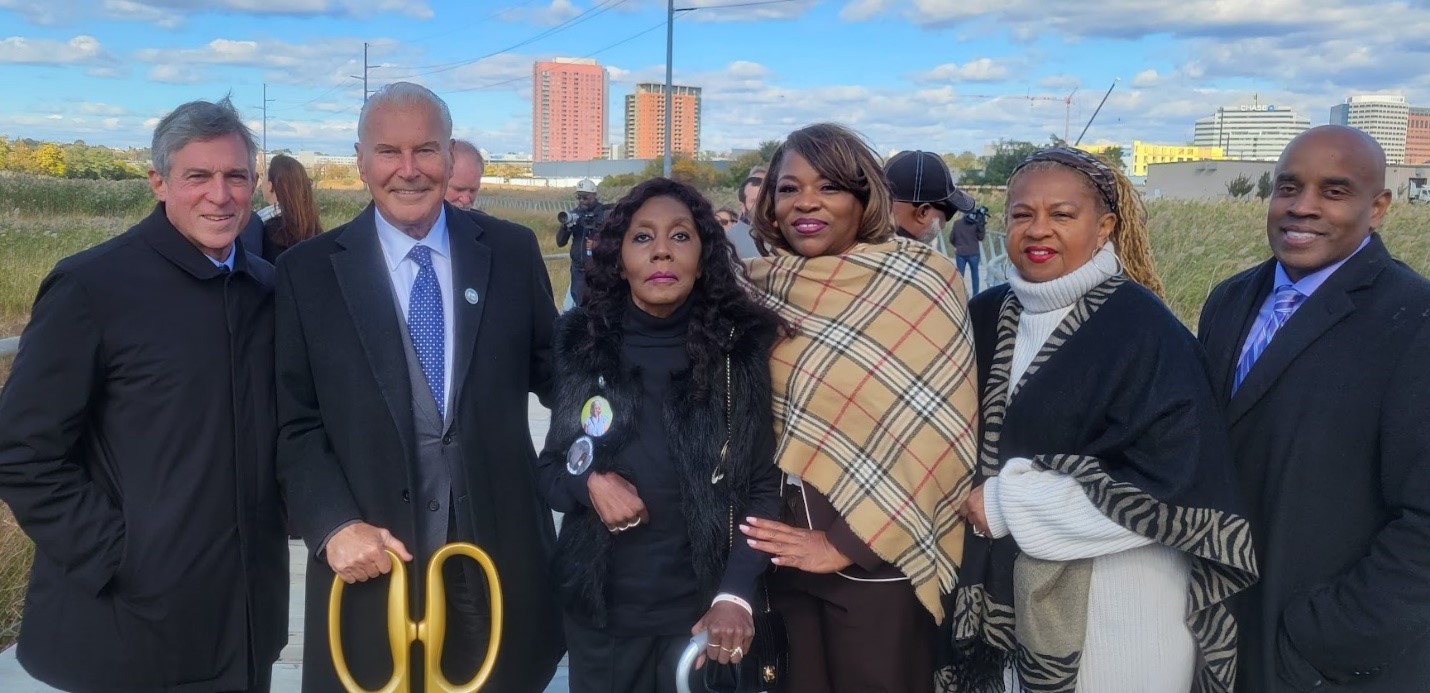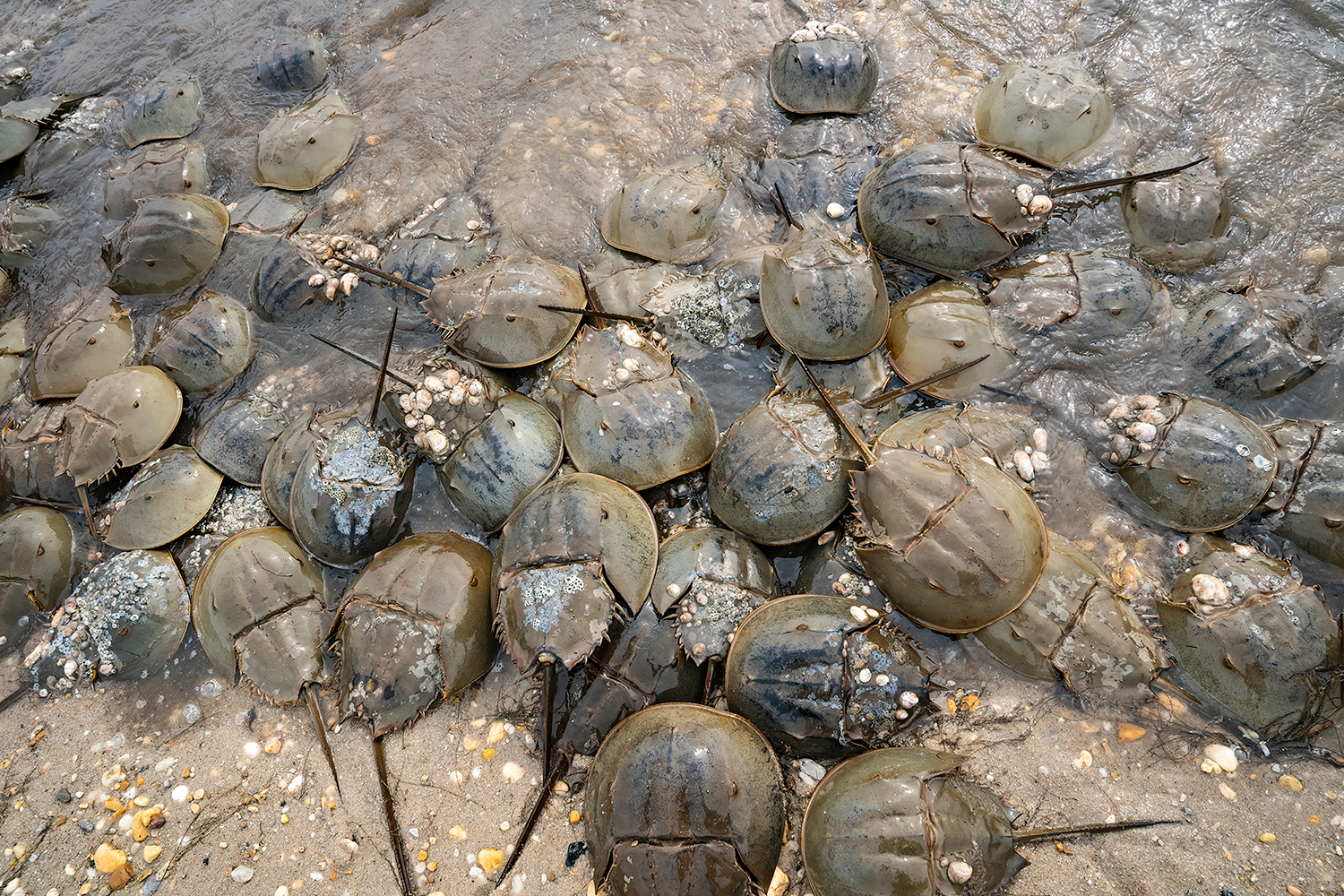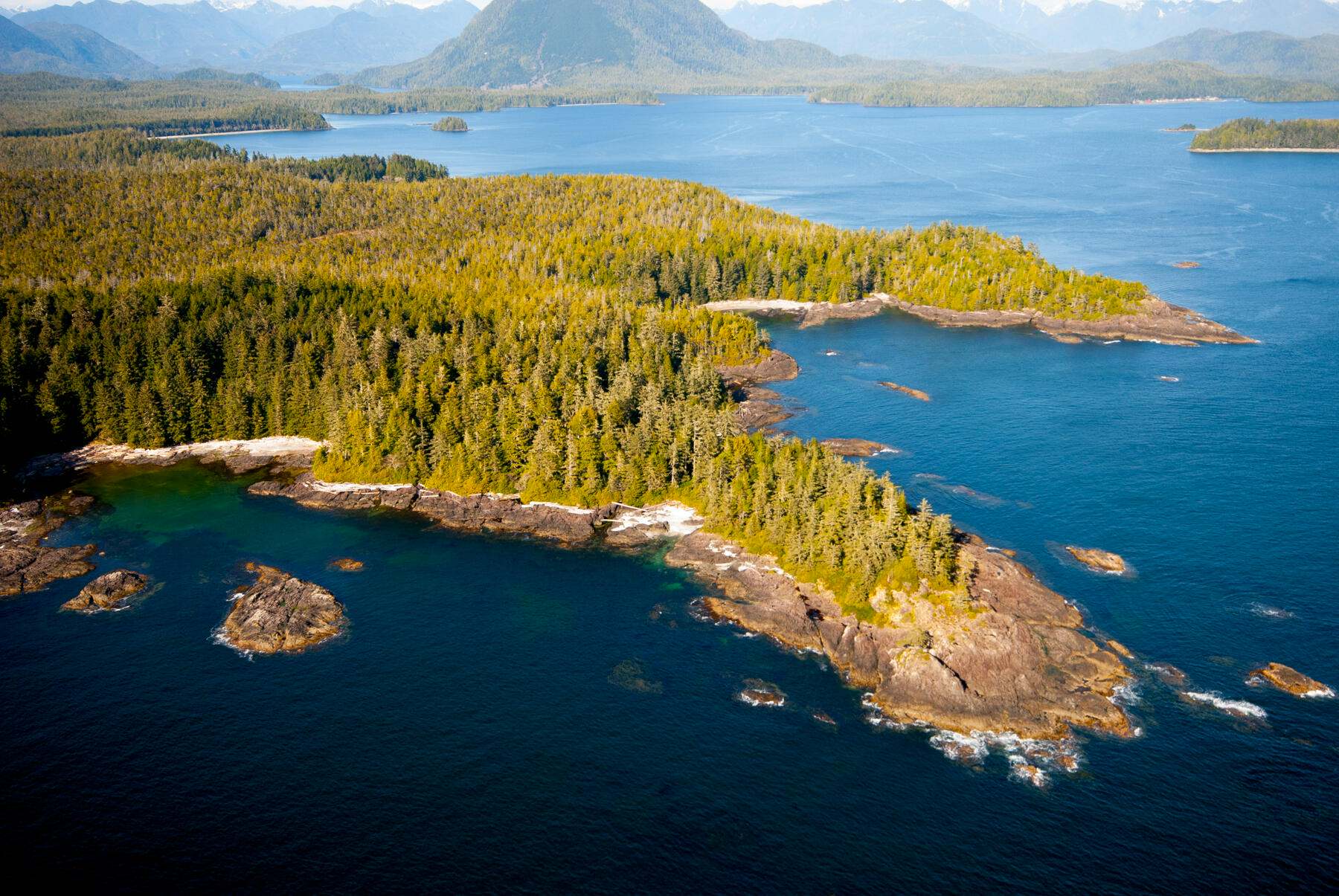PA/DE 2023 Impact Report
2023 was an important year for conservation. There is much to celebrate and much more work to do.
Executive Welcome
From our Executive Director & Board Chair
Dear Friends,
With your support, it has been another remarkable year for conservation in Pennsylvania and Delaware. The Nature Conservancy (TNC) continues to make progress in tackling the interconnected challenges of climate change and biodiversity loss while contributing to our organization’s global 2030 goals. Despite the scale of the task ahead, we remain optimistic that there is more momentum toward action than ever before. Thank you!
From the Appalachian Mountains to the Delaware Bayshore, 2023 was a year of strengthening our work both locally and globally. Key highlights included securing critical land protection acquisitions along the Kittatinny Ridge; expanding the impact of our prescribed burn program in central Pennsylvania and southern Delaware; installing green stormwater infrastructure at a faith-based community center in Philadelphia; investing in regenerative agriculture in the Chesapeake Bay watershed; and supporting key climate policy wins in Dover and Harrisburg.
Durable conservation must also be equitable conservation, which is why we continue to incorporate the principles of diversity, equity, inclusion and justice into all that we do. We are deploying collaborative, innovative conservation solutions to solve today’s greatest challenges, and each inspiring accomplishment that you will read about advances our vision of nature and people thriving. There is still so much more that we can accomplish.
As someone who stands up for nature, you are an important partner in this work. In these pages, we’ve highlighted several initiatives where donor impact was crucial to securing key conservation wins. We’re grateful for your support of TNC as we employ our science-based approach to advance climate solutions and preserve our lands and waters for generations to come. Together, we will secure a sustainable future for our cherished natural spaces in Pennsylvania, Delaware and beyond.
Together, we find a way.
-

Lori Brennan
Executive Director
-

Carol Collier
Board Chair
Since 1951, The Nature Conservancy has been partnering with communities to create a world where people and nature thrive. Today, we’re facing the most complex challenges of our lives, and we have years, not decades, to address the interconnected climate and biodiversity crises.
Local action matters and our conservation projects throughout Pennsylvania and Delaware directly support the 2030 global efforts. Together, with your support, we will overcome barriers to progress in order to achieve our biggest, most ambitious goals yet.
See how our local actions are contributing to our global 2030 goals:
2023 Impact Report: What’s Inside
Discover how we’re making a difference in Pennsylvania, Delaware and beyond
The Appalachians
Creating resilient and connected forests that support biodiversity and provide lasting benefits for both nature and humans.


-
TNC has received a four-year, $4 million land protection loan that is below market interest from the Richard King Mellon Foundation that will catalyze tangible, durable conservation outcomes for people and nature throughout Pennsylvania, West Virginia, and the broader Central Appalachian landscape. The loan is designed to enable large-scale protection of critical ecosystems such as the Kittatinny Ridge, the Allegheny Front and the Canaan Valley. Protecting nature within these places will help achieve TNC’s goals of improving water quality, preserving biodiversity, restoring forests and building climate resiliency.
“By strengthening TNC’s work throughout the Central Appalachians, this investment positions us to act quickly on critical land protection deals while securing the region’s corridors and providing perpetual habitat to migrating species. The Richard King Mellon Foundation’s support is directly in line with our bold 2030 goals which will not only protect critical habitats, lands and waters but also be a significant boost for lives and livelihoods and enable concrete strides for the Appalachians and beyond.”
—Jennifer Morris, Chief Executive Officer of The Nature Conservancy
-
Big things are happening at Long Pond Complex, TNC’s flagship preserve in the Poconos. Our stewardship team and local volunteers have been busy adding community engagement opportunities to the Hauser Nature Center like pollinator gardens and a nature play area. The recently completed universal trail creates a more inclusive way to enjoy the scenery, and newly installed all-electric vehicle chargers donated by Rivian now allow drivers to visit without expanding their carbon footprint.
TNC is grateful for the work of our volunteers, who donate hundreds of hours each year to help maintain our preserves. This year, the Susquehanna Appalachian Trail Club and other local volunteers helped us complete trail maintenance and invasive species management at the Hamer Woodlands at Cove Mountain. Volunteers also assisted us with restoration monitoring at the Blakeslee Preserve in Cherry Valley National Wildlife Refuge. Thank you!
-
Prescribed fire is an essential tool for maintaining forest health and rejuvenating landscapes. Conducting burns on TNC preserves helps us meet our management goals. As a recognized prescribed fire leader in the region, we’ve continued a long-standing partnership with the Pennsylvania Game Commission and recently established a new initiative with the Pennsylvania Bureau of State Parks (BOSP) to build capacity and train the next generation of fire practitioners.
This will be a significant impact multiplier, as BOSP owns and manages 125,000 acres within TNC’s focal landscapes for climate resilience and biodiversity in the Keystone State. TNC is also working with the Natural Resources Conservation Service in Pennsylvania to enable more prescribed burns on private lands. Staff hosted a Learn & Burn workshop for over 30 landowners and are developing a Certified Prescribed Burn Manager Training Workshop.
| Location | Acres Protected |
|---|---|
| Shohola Creek | 1,071 Acres |
| Boyd Big Tree | 5 Acres |
| Fremount | 75 Acres |
| Bear Creek | 240 Acres |
| Rausch | 165 Acres |
| McKean | 130 Acres |
Pennsylvania Policy & Government Relations
Pennsylvania sits at the crossroads of the climate and biodiversity challenges, and policy is the foundation on which progress depends.
to expand our Pennsylvania government relations
Strategic Investments
Pennsylvania sits at the crossroads of the climate and biodiversity challenges, and policy is the foundation on which progress depends. Each year, our Pennsylvania policy team advocates in Harrisburg and Washington, D.C. for consistent, long-term, increased appropriations to support land conservation and investment in capacity for active management of resilient and connected private and public lands.
Pennsylvania is one of just a few states with a full-time legislature and a year-round legislative session. We’re also home to the fifth-largest congressional delegation. With this in mind, we’ve made strategic investments to expand our Pennsylvania government relations team in 2023, which will allow us to continue building relationships with lawmakers and working with our coalition partners to advance our advocacy efforts on both sides of the aisle.
Our local-to-global policy recommendations are drawn from decades of hands-on experience working with businesses, industries, governments, and people from all walks of life. We advance policy solutions that work for both people and nature.
-
In 2022, the federal Inflation Reduction Act made a once-in-a-generation investment in confronting climate change, while hastening the deployment of climate solutions. From supporting Solar for All programming to leveraging our share of over $23 billion in greenhouse gas reduction funding, TNC is ensuring that Pennsylvania is in the best position to benefit from those funds.
TNC supports policy action to achieve a 30% carbon reduction by 2030 and net-zero emissions across all sectors by 2050. We work with local, state, and federal legislators to accelerate the deployment of conservation-compatible zero-emission energy and will provide the tools to make clean energy equitable and accessible for all Pennsylvanians.
We’re already seeing positive momentum: A bipartisan statewide survey conducted by TNC in 2023 found that the majority of Pennsylvania voters and labor union households support gradually transitioning to 100% of energy being produced from clean and renewable sources over the next 15 years. Nearly two-thirds of voters overall support this transition.
-
Last November, voters in Carbon County overwhelmingly approved a $10 million county bond program that will provide funding to improve water quality, support working farms, and protect wildlife habitat. TNC advocated for the measure, which earned 82.7% approval—one of the highest passage rates in our 30-plus-year history of supporting open space ballot initiatives.
The bond will provide a local source of funding for Carbon County which can then be used to leverage private, state and federal programs that require matching sources. This is a major conservation win for the Kittatinny Ridge, a biodiversity superhighway in the Central Appalachians and one of TNC’s top priorities for protection.
Delaware Policy & Government Relations
The Nature Conservancy in Delaware advocates on the federal, state and local levels for equitable climate change adaptation and mitigation, cleaner water and air, wildlife protections, restoration of critical habitats, and land conservation policies that help protect natural and human communities.
Legislative Success in Dover
The 2023 Delaware General Assembly session was transformative from an environmental and clean energy perspective, with TNC supporting several important bills that ultimately went to the Governor’s desk to be signed into law.
Topping that list: House Bill 99, also known as the Climate Change Solutions Act. The landmark bill sets greenhouse emission reduction targets for Delaware and requires the state to take climate change into account when making major investment and purchasing decisions. The policy also ensures, critically, that climate change reduction strategies do not disproportionately impact overburdened communities.
Other important environment and clean energy legislative victories included House Bill 10 (requiring 30% of Delaware school buses to go electric by 2030), House Bill 11 (requiring all new large commercial construction to be compatible with rooftop solar) and House Bill 12 (codifying and expanding Delaware’s electric vehicle rebate program). The state legislature also allocated $31.8 million to improve Delaware’s drainage, drinking water, and water resources; $7.5 million to protect shorelines and beaches; and funding for the Tree for Every Delawarean Initiative.
TNC celebrates these important victories—many of which are the result of our strong community of environmental partners throughout the state—and will continue to build on the momentum in 2024.
-
On the federal policy level, TNC celebrated another win for Delaware when U.S. Senator Tom Carper announced Environmental Protection Agency grant funding for several of the state’s clean water projects. The funds will support annual monitoring of water quality at Delaware beaches, assessments of wastewater treatment systems in underserved manufactured home communities throughout Delaware’s portion of the Chesapeake Bay watershed, and restoration funds for 25 acres of wetlands in the Great Cypress Swamp.
-
TNC and our partners strive to build a world where people and nature thrive. In our Delaware advocacy work, we are committed to listening to and advancing the priorities of diverse community members. Our efforts to increase protections from air and water pollution, ensure equitable access to open space and conserved lands, and advocate for overburdened communities that are uniquely vulnerable to climate change express our commitment to the planet and people.

Advocacy in Action
The Delaware Land Protection Coalition—of which TNC is a founding member—hosted its second annual Conservation Day at Legislative Hall in Dover in May. TNC staff, trustees and dedicated member-volunteers joined other coalition partners to meet with elected officials to demonstrate their support for open spaces and conserving lands in the First State.

Chesapeake Bay Watershed
Protecting lands, waters and people along this critical watershed serving 18 million people across six states.
The Chesapeake Bay’s watershed encompasses 64,000 square miles of streams and rivers, forests, farms and cities across six states. Every minute, almost 19 million gallons of freshwater flow into the Bay via its largest tributary, the Susquehanna River. The Susquehanna watershed covers more than half of the land area of Pennsylvania. Advancing wetland restoration and sustainable agricultural practices are critical to successfully meeting our freshwater goals for the Chesapeake Bay.
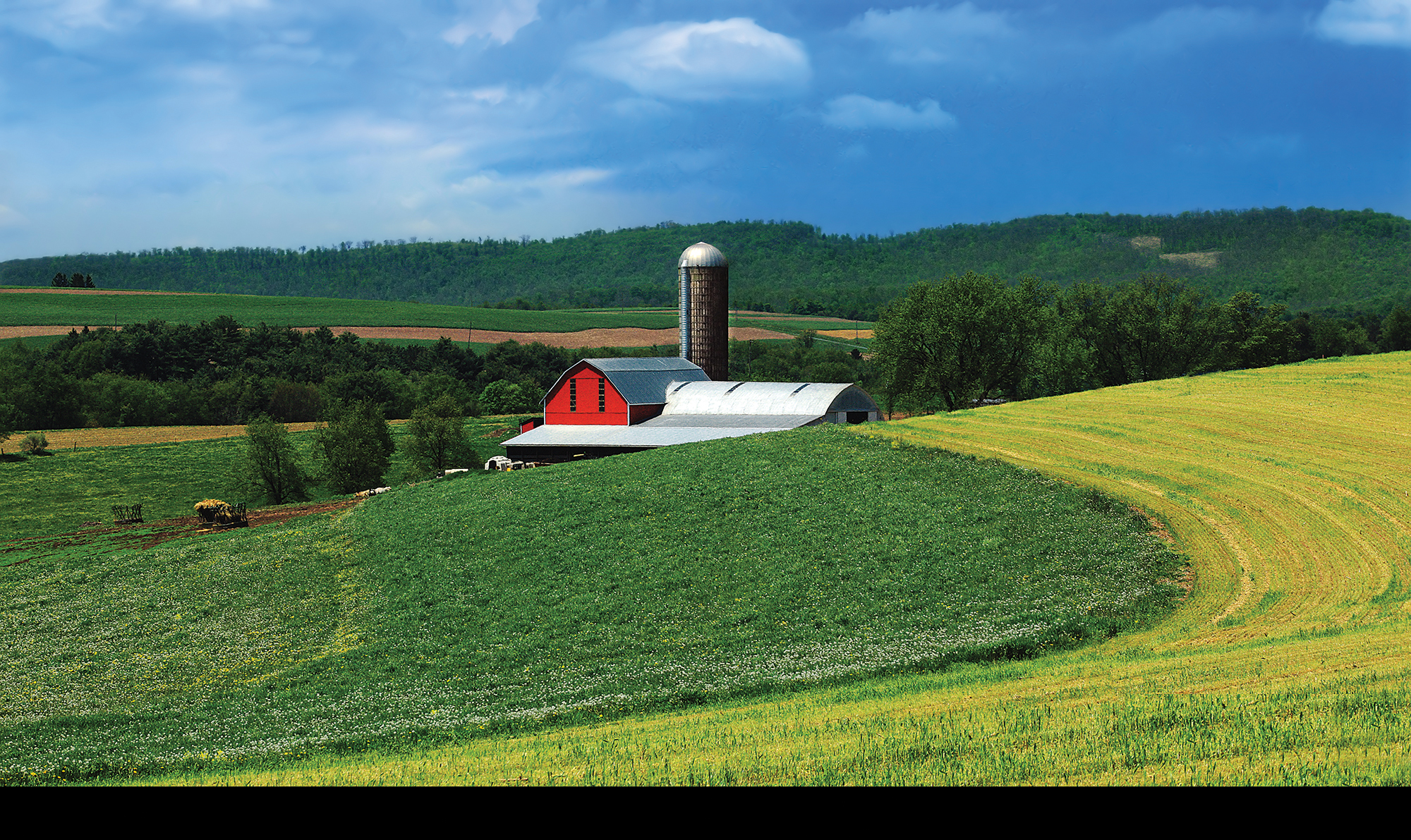
Sustainable Agriculture, Cleaner Water
Agriculture is part of Pennsylvania’s heritage and powers the state’s economy. It also represents one of the largest sources of nutrient and sediment pollution entering the Chesapeake Bay. This year, Sustainable Chesapeake, in collaboration with TNC and the PA 4R Alliance, received $1 million to advance practices that will reduce pollution by using manure and fertilizers more effectively over the next two growing seasons, influencing a total of over 4,000 acres.
In the spring, 26 agricultural service providers participated in a Sustainable Agriculture Research and Education workshop that TNC advised. That cohort has since gone on to log 72 individual educational outreach conversations with farmers, influencing 58,459 total acres. In 2024, TNC will kick off a year-long dairy farm pilot project designed to incentivize reductions in milk-urea nitrogen. These reductions can increase cow feed efficiency, decrease feed expenses for farmers, and ultimately reduce nitrogen in urine and manure. The result: cost savings for farmers and cleaner water for the Chesapeake Bay.
A Year of Transformative Partnerships
TNC is committed to advancing wetland and floodplain restoration efforts by collaborating with partners throughout the watershed. In Pennsylvania, TNC and our partners at Lancaster Farmland Trust have reached out to over 150 targeted landowners this year to gauge their interest in various restoration efforts that could improve water quality locally, and ultimately, in the Chesapeake Bay.
TNC is also a member of the Upper Hammer Partnership which seeks to advance conservation in a priority watershed. Earlier this summer, TNC joined Trout Unlimited and the Pennsylvania Department of Environmental Protection in southern Lebanon County to perform brook trout surveys along Hammer Creek. The presence of brook trout indicates good water quality due to the specific conditions they need to live and breed.
The survey determined that the current conditions of the creek are sub-optimal for the trout. TNC is working to improve the species’ habitat, restoring wetlands and floodplains to cool streams and benefit the riparian ecosystem.
Cultivating Shared Values
In the United States, 22 states—including Pennsylvania and Delaware—have lost at least 50% of their original wetlands. Within the Chesapeake Bay watershed, just 17,000 acres have been preserved against a goal of 85,000. Reaching that target will require private landowners to apply conservation best practices. In collaboration with the Delmarva Wetland Partnership, TNC recently conducted a survey of wetland landowners in the Delmarva region whose properties had been identified as priority areas for restoration. An ecological targeting model identified the properties as areas where wetland and adjacent upland restoration could provide the most benefits without impacting prime agricultural areas.
The results found that:
-
75%
Agreed that wetlands help reduce the impact of flooding
-
94%
Agreed that wetlands can help protect wildlife
-
86%
Expressed at least some interest in restoring their land
-
84%
Felt these natural spaces were beautiful
-
65%
Reported never being contacted about possible restoration
The results will guide future outreach efforts as the coalition focuses on engaging landowners to voluntarily restore wetlands on the Delmarva peninsula.
A Generational Legacy of Conservation
For Ted Daeschler, a love of nature has always run in the family.
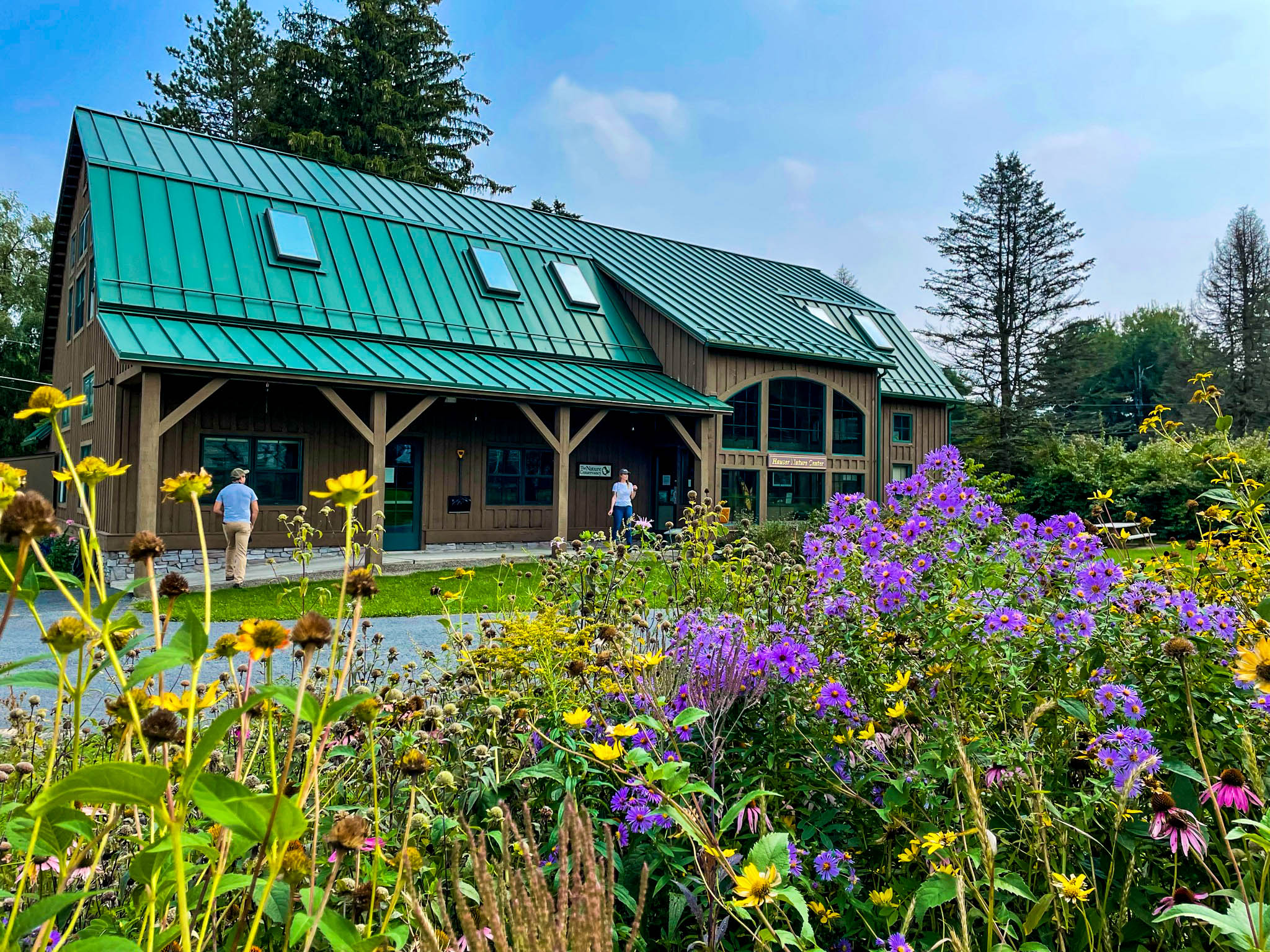

“My grandmother, Helen Hauser, loved to watch birds at the bird feeder and get us to learn the names,” Ted says, recalling his childhood spending summers in northeast Pennsylvania’s Pocono Mountains .“When we would go fishing, we would keep a record of what we caught. My grandmother would actually give us a nickel or a dime if we saw certain kinds of birds or found certain flowers. It taught me to observe the world around me in a new way.”
An accomplished naturalist and a lifelong advocate for conservation, Helen Hauser spent summers at Pocono Lake Preserve in Pennsylvania and was an early supporter of The Nature Conservancy.
“In the 1980s, TNC was part of purchasing an adjacent wetland ecosystem, and my grandmother and others in my family spoke to people in the community to help raise those funds.TNC still stewards that property,” Daeschler says. “That was my first connection to TNC and understanding the importance of conservation.”
In 2002, TNC completed the reconstruction of the barn at our Long Pond Preserve and dedicated it as the Hauser Nature Center in recognition of the generous contributions of the Hauser family.
Daeschler has had a distinguished career as a geologist and paleontologist. He has been a scientist at the Academy of Natural Sciences in Philadelphia since 1987 and a member of the Drexel University faculty since 2011. After he earned his Ph.D. at the University of Pennsylvania in 1998, his vertebrate paleontology research took him to far-flung locales such as the Canadian Arctic and Antarctica. But closer to home, he and his family have always remained involved with TNC.
“When my grandmother passed, my mother, Joan Hauser Daeschler, continued to support improvements and maintenance at the nature center. My sister, Lynn Daeschler Magrane, was actually on the TNC Pennsylvania Board of Trustees for some time,” says Daeschler, who is currently a Pennsylvania/Delaware Trustee.“We all care deeply about the organization and its mission and now I’m continuing that tradition.”
Daeschler notes that as a geologist, he naturally thinks across very lengthy time scales. In his travels around the world, he’s observed the rate and scale at which humans are affecting the planet. And that, he says, is one reason why he chose to become a member of TNC’s Legacy Club: to ensure that nature is protected long into the future.
TNC’s Legacy Club, now in its 30th year, offers supporters several flexible options for including TNC in their estate planning to support conservation programs. Daeschler and his family, for example, have chosen to structure their gift as a Charitable Remainder Unitrust, which offers tax savings and income benefits.
Bequests from Legacy Club members allow TNC to continue our long-standing work in regions like the Poconos by acquiring property, completing an ecological management plan and establishing a prescribed fire program for this unique landscape, restoring more than 2,000 acres to date in the area’s unique till barrens ecosystem. Today, TNC continues to work with local government and other partners to acquire and manage additional lands and provide public access to quality outdoor recreation.
“Legacy really is the right word for it, because there are so many different meanings within that. Ultimately, it’s about building for the future,” Daeschler says.“What’s really nice about family members sharing a love of nature is building intergenerational connections ...it allows you to connect with those that are older or younger than you and you learn from them. That’s such an invaluable part of society, and it’s what we want to be remembered for.”
Begin You Conservation Legacy Today
Planned gifts are one of the easiest, most impactful ways to support TNC’s critical conservation work. You may be able to save on taxes, receive income for life or enjoy other financial benefits—all while helping to keep nature healthy for years to come. There are so many ways to join the Legacy Club and contribute to TNC’s mission.
Urban Conservation
The Nature Conservancy works in Philadelphia and Wilmington to plan and advance solutions to help capture excess stormwater, supporting efforts to plant more trees to help cool urban heat islands and reduce air pollution, and engaging and inspiring the next generation of environmental stewards. We are committed to securing equitable conservation outcomes for communities already feeling the effects of climate change.
Wins for Philadelphia & Wilmington
Quote: Jeff Flynn
[The Southbridge Wetlands Park] will have tremendous long-term benefits for the Southbridge community and epitomizes the value of collaborative nature-based conservation efforts in Delaware.
Delaware Stewardship & Management
The Nature Conservancy owns and manages more than 5,000 acres in southern Delaware, with ecosystems ranging from shoreline dunes to freshwater wetlands to mixed hardwood forest. We are committed to stewarding these lands in perpetuity and we routinely conduct restoration work on our preserves in order to build resilience against the impacts of climate change.

Expansion at Ponders Tract
Generous donor support allowed TNC to purchase 7.5 acres near the entrance to Ponders Tract, marking our first Delaware land acquisition in 20 years. The parcel will preserve the acreage from future development and help safeguard TNC’s ability to conduct prescribed burns safely on this 900-acre tract of the larger Pemberton Forest Preserve.

Prescribed Burning Heats Up
Prescribed fire is an essential tool for maintaining forest health. Returning fire to the landscape helps thin dense brush, restores soils by recycling nutrients and increases biodiversity. This year, for the first time ever, TNC and our certified team of fire professionals recruited an on-demand burn crew who could quickly and nimbly assist with burn projects in Delaware and on the eastern shore of Maryland when conditions proved optimal. The initiative proved to be a success as the crew cleared vegetation and assisted with burning a total of 1,383 acres across the two states including a 140-acre burn at Ponders Tract at Pemberton Forest—our largest prescribed fire in Delaware to date.
And there’s even more good news for Delaware’s forests: TNC began a selective thinning project at Ponders Tract to remove excess loblolly pines from the former tree plantation to allow more desirable tree species to grow, like oaks. Oaks naturally host more native insects and sequester more carbon than the less-dense loblolly pine wood. Crews thinned 95 acres of a 235-acre area, allowing direct sunlight to reach the forest floor. The resulting plant growth provides essential food for insects, birds and other wildlife.
We’re Grateful to our Volunteers!
Volunteers contribute their time & effort to help our stewardship team maintain our preserves. In 2023:
- Chesapeake Utilities staff planted 900 native trees at Bullseye Ferry Preserve
- Garrison Electric staff helped with tree tube maintenance at Middleford North Preserve
- Monitored Bluebirds at McCabe Preserve
- An Earth Day clean-up at Milford Neck Preserve
- Lead hikes on restoration techniques
Oceans & Coasts
Stretching from the mouth of the Delaware River in southern New Castle County to the Atlantic Ocean, the Delaware Bayshore hosts more than 50 miles of tidal shoreline backed by a variety of dunes, tidal salt marshes, freshwater wetlands and maritime forest.
Delaware’s coastal habitats and human communities are facing an existential threat from sea level rise. As the state with the lowest mean elevation (and with sinking land), Delaware is at the center of sea level rise impacts along the Atlantic Coast, with current projections of up to 5 feet by 2100. Stretching from the mouth of the Delaware River in southern New Castle County to the Atlantic Ocean, the Delaware Bayshore hosts more than 50 miles of tidal shoreline backed by a variety of dunes, tidal salt marshes, freshwater wetlands and maritime forest. These natural areas serve as critical habitat for a number of economically and recreationally important fish species, horseshoe crabs and migratory birds, including the federally threatened red knot, a shorebird that flies 9,300 miles from South America to the Arctic each spring.
Marshes and wetlands provide benefits to farmland, property and inland communities that call the Bayshore home. Healthy coastal marshes protect our coasts during heavy storms—which are becoming more frequent due to climate change—by mitigating flooding, which can damage infrastructure, homes and personal property as well as ruin agricultural fields. Marsh vegetation also helps prevent erosion and acts as a natural filter of sediment and nutrient pollution.
The Nature Conservancy is committed to working with partners throughout the Delaware Bayshore landscape to advance coastal resilience and climate adaptation. We work strategically to conserve additional lands, facilitate marsh migration, protect vulnerable human communities and restore critical habitats for our iconic migratory fish, birds and wildlife.
There is no one-size-fits-all approach: Adaptations must be tailored to the needs of a community. As sea levels rise and storms become more frequent and intense, we aim to ensure that important coastal habitats persist and residents are protected from disasters.
This year, TNC began work on a Coastal Resiliency Roadmap for Kent and Sussex counties, both of which support a series of small, low-lying communities located near the coast or tidal waters that are highly vulnerable to sea level rise. The roadmap will build capacity, awareness and support for land protection work, in addition to assembling a coalition of local and regional partners who are committed to scaling up the impact and addressing the needs of vulnerable coastal communities.
Global Impact in Africa
On the ground and in the skies, the Bishop family’s transformative gifts support TNC’s community-driven conservation programs in Kenya and beyond.
Kathy Bishop, CEO, President and Chairperson of Lebanon Seaboard Corporation and a current TNC PA/DE trustee, vividly recalls the beginning of her conservation journey with TNC in the late 1980s.
“I had recently returned to the U.S. from living in Australia and was looking to reconnect with educational and nature-centric organizations,” she says.“I supported TNC at a membership level for quite a while. Eventually, in my travel reading, I became aware that elephants were being poached and under great attack. Having been to Africa and seeing these wonderful animals in the wild, I didn’t want to imagine a world without them. We couldn’t have such a thing.”
A world traveler and an accomplished Pennsylvania-based business leader, Kathy was determined to make a difference to help protect elephants. She learned that TNC had teamed up with Kenya’s Northern Rangeland Trust to promote wildlife conservation programs and implement anti-poaching surveillance. So, in 2014, after meeting with the program’s director and learning more about the community-focused work, she was excited to contribute to help these African efforts expand.
Quote: Kathy Bishop
Having been to Africa and seeing these wonderful animals in the wild, I didn’t want to imagine a world without them. We couldn’t have such a thing.
Kathy also enlisted another wildlife aficionado to join the cause: her brother, Tom Bishop, the founder of the influential BI Research financial newsletter and a member of Lebanon Seaboard’s Board of Directors since 1978. Tom shared Kathy’s concern for the state of elephants in Africa and felt compelled to help the majestic creatures.
In 2017, the Bishops supported the purchase of a small aircraft for Kenya-based staff to monitor poaching activity from the air and report violations to local authorities. At Tom’s suggestion, the red single-engine plane was adorned with Kathy’s name in honor of her love of aviation. It is still used today for a wide range of aerial missions, including vegetation surveys and wildlife counts.
Recently, TNC and the Bishops have been working together to tackle a different type of challenge in northern Kenya: invasive species.
“Loisaba Conservancy is a 57,000-acre community-conservation project, known for its thriving wildlife, sustainable cattle ranching and ecotourism,” says Ademola Ajagbe, TNC’s Regional Managing Director for Africa. “It also has an invasive cactus problem, with an estimated 20 percent of the Conservancy covered in the plant. The cacti choke out native grasses, depriving wildlife of food.”
The nuisance cactus, known formally as Opuntia engelmannii, attracts wildlife—particularly elephants—with its sweet fruits, but can injure or even kill animals with its thorns. What’s worse, opuntia has a thick stalk and deep root balls that are difficult to destroy by hand. Cutting it off at the base only encourages stronger regrowth.
Tom heard that and, having operated a backhoe himself, thought: why not provide one?
“They were digging them out with hand tools, so I donated funds for some equipment to make the process more efficient,” he says.“Then in 2021, I provided additional funding to double the removal effort.”
With the heavy machinery in place, staff have cleared over 3,000 acres of the invasive opuntia since 2019. The cleared areas will be replanted with native species (such as acacias) to repopulate and enrich the soils The Loisaba team is also deploying novel solutions like releasing cochineal beetles to prey on the opuntia The beetles are effective in reducing the opuntia in rocky areas where manual removal is nearly impossible.
“With the accelerated removal of this invasive plant through mechanical removal and biocontrol, we are stopping this nasty threat to wildlife and livestock,” Ajagbe says.
Over the years, Tom and Kathy have championed many other TNC efforts in Africa, including the Affinity Group for Women & Girls, which provides dormitories, meals, books, education, and other resources for girls living in impoverished Tanzanian communities to help them succeed.
“Engaging African women in leadership will help conservation,” Kathy says "It will help the development and education of girls and women, and it’ll bring a different perspective.
”As we continue to make progress toward our global 2030 goals, the Bishops’ generous support helps protect critical landscapes half a world away and epitomizes TNC’s local-to-global commitment to securing equitable outcomes for people and nature.
“TNC is working on the ground, working with good science and developing carefully thought-out plans that make economic sense,” Kathy says “The same philosophies used in Africa are used in Pennsylvania TNC’s approach can translate anywhere in the world. If you have a love for something—birding, elephants, waterfalls, rivers—chances are that if you dig a little bit, there is something that TNC is working on that can tie into that passion ”
We work in 79 countries to conserve the lands & waters upon which all life depends. The global consequences of the biodiversity & climate crises—extreme temperatures, devastating flooding, historic wildfires & global food shortages—make success imperative.
To learn more about getting involved with our global programs, please contact our staff at PADE@tnc.org or call 610-834-1323.
Download the Report
-
2023 Impact Report
A look at highlights and conservation successes across Pennsylvania & Delaware for 2023.
DOWNLOAD
Stay in Touch
Sign up to receive monthly e-mail conservation news & updates from your state.


